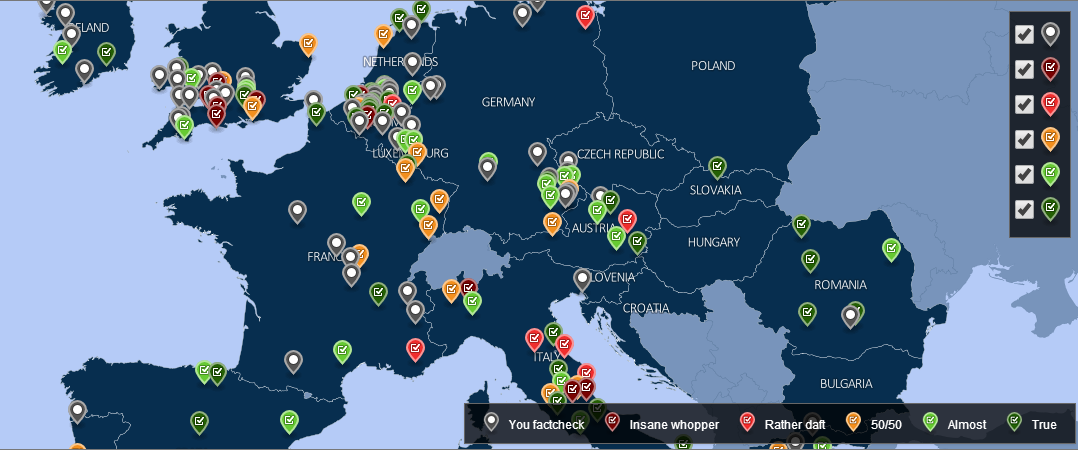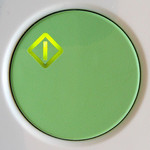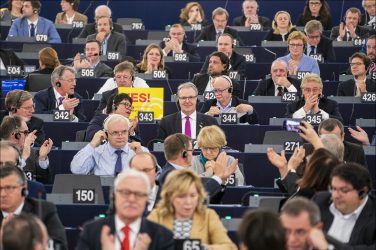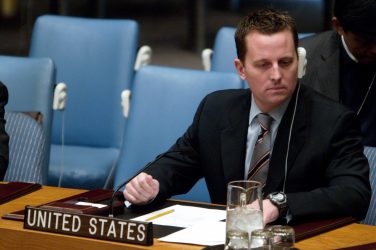Over the past decade online factcheckers have scrutinised politicians’ statements in interviews, talks shows and their speeches. Starting in the United States with sites such as Pulitzer Prize-winning politifact, the idea has spread all over the globe. E&M author and fact checker Ragnar Weilandt explains how, in the run up to the European elections in May 2014, a new platform called FactCheckEU.org, is keeping European politicians in check.
Factchecking the European Parliament elections 2014
Three months have passed since the labour movement restrictions on Romania and Bulgaria were lifted, and little has changed in the United Kingdom. This will have been a bit surprising if you had been following the British political debate in late 2013, which seemed to suggest the end of civilisation as we know it. ‘Hordes’ of Bulgarians and Romanians were supposed to come to the island, either taking away jobs from hard-working Brits or grabbing the United Kingdom’s generous welfare benefits.
Many politicians across Europe proved to have a rather relaxed attitude towards facts.
During the recent political debate on the freedom of movement within the European Union, many politicians across Europe proved to have a rather relaxed attitude towards facts. Whilst it is usually the media’s role to scrutinise what politicians tell their voters, they don’t always do a particularly good job when it comes to the European Union.

‘Sold out! Flights and buses full as Romanians and Bulgarians head for the UK,’ was the headline of a story in the Daily Mail on 31 December 2013. Although the paper quietly retracted the story later, it showcased the need for rational and fact-based reporting. Even in more responsible media outlets, a widespread lack of interest in or in-depth knowledge of European affairs contributes to the worrying trend of politicians getting away with most outrageous claims.
This creates a need for independent watchdogs checking up on them. In order to improve the quality of the debate on European politics, a group of young European citizens (including the author of this article) has set up FactCheckEU.org. Funded by a grant from the German Mercator Foundation, the website collects and analyses politicians’ statements on European affairs, and grades them on a scale from ‘True’ to ‘Insane Whopper’.
A better, more accurate debate
The website monitors politicians across the political spectrum, independent of their views on the EU. If hardline Eurosceptics make valid points, this is acknowledged. At the same time Europhiles do not get a way with inaccuracies either. This is essential in ensuring the website can support a fact-based debate that is in everyone’s interest, whether they believe in a federal union or are sceptical about authority being transferred to Brussels.
Ironically, the most frequent ‘insane whopper’ is made by both Europhiles and Europhobes.
Ironically, the most frequent ‘insane whopper’ is made by both Europhiles and Europhobes. In 1988 then Commission president Jacques Delors predicted that within ten years 80 per cent of economic legislation would be made by the European Parliament. Whilst in practice the European Parliament remained a rather toothless institution until the ratification of the Lisbon treaty in 2009, the projected figure took on a life on its own. Having been repeated again and again by journalists, politicians and even scholars, it is now widely seen as an established fact that 70-80 per cent of national legislation is made in Brussels.

In the last few months such claims have been made by presidential candidate Martin Schulz and vice president Viviane Reding, who used the figure to emphasise the importance of the European institutions and the upcoming European elections. At the same time Nigel Farage cited it as an example of what he considers to be creeping disempowerment of national governments and parliaments.
The truth is that the percentage of laws made by the EU varies greatly between different countries and actually gets nowhere near 80 per cent in any of them. According to research conducted by Professor Annette Elisabeth Toeller, Germany has one of the highest percentages, with 39.1 per cent of national legislation coming from the EU. In the United Kingdom, whose independence from Brussels Mr Farage is fighting for, it is only 15.5 per cent of the national laws, a number echoed by a 2010 House of Commons research paper.
Facts, the basis of debate
There are enough valid arguments both sides could use to support their case for more or less Europe. To highlight the European Parliament’s relevance, Europhiles can point at its power to co-decide on most EU legislation, including international agreements such as the hotly debated Transatlantic Trade and Investment Partnership (TTIP). Eurosceptics could attack the limited transparency in the Commission’s negotiations on this agreement, or the waste caused by sending MEPs to the Parliaments’ second seat in Strasbourg every month. A debate on the real issues would be more helpful to tackle Europe’s problems and challenges.
There are enough valid arguments both sides could use to support their case for more or less Europe.
Factcheckers ensure that politicians are made aware that someone is listening to and double-checking what they are saying. A number of politicians and even the European Commission have already reacted to individual factchecks on them. Academic research suggests that the awareness that someone is factchecking them does have an effect on what politicians say.

Expanding factchecking to politicians across the continent for the next European elections will require broad participation. Readers can upload statements to be checked or help with translating analyses in up to six different languages. If you feel like being a factchecker yourself, you can submit your own draft analysis of a statement to be checked, edited and published by the FactCheckEU staff.
The aim is to create a large community and a network of research institutes to help covering statements made by politicians all over Europe. In doing so, ordinary Europeans can be active in ensuring that all politicians are sticking to the facts when discussing European politics.
Few people doubt that there is a major need for a debate on what the EU is and should or should not become. Opinions are likely to very different and that is how it should be. But as a former editor of The Guardian once famously put it: ‘Comment is free, but facts are sacred.’ Whether they love Europe or hate it, politicians should get their facts straight.
Cover Photo: United States Forces Iraq, CC BY-NC-ND 2.0 (Flickr)






